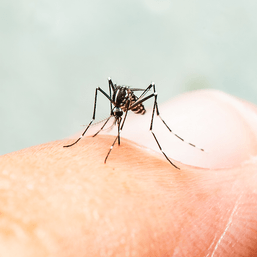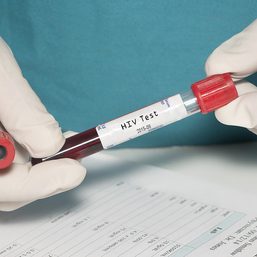SUMMARY
This is AI generated summarization, which may have errors. For context, always refer to the full article.

At a glance
- Claim: Nurture’s Well paragis organic capsule treats uterine problems
- Rating: FALSE
- The facts: Nurture’s Well paragis organic capsule is not a registered product with the Philippine Food and Drug Administration (FDA). The FDA published a public health warning against the purchase and consumption of Nurture’s Well paragis capsule in 2021.
- Why we fact-checked this: The post containing the claim has over 1,800 reactions, 1,100 comments, and 163,000 views on Facebook, as of writing.
Complete details
A post on July 8, by the Facebook page “Paragis Organic Capsules” claims that paragis organic capsules, a food supplement produced by a company named Nurture’s Well, treats uterine problems like Polycystic Ovarian Syndrome (PCOS), ovarian cyst, myoma, and irregular menstruation.

This is false.
According to the Philippine Food and Drug Administration (FDA), Nurture’s Well paragis organic capsule is not on its list of food and drug products.
The FDA also published a public health warning against the purchase and consumption of Nurture’s Well paragis capsule in 2021 because the product has not gone through the FDA’s quality and safety evaluation process.
A study conducted by researchers from the University of Malaysia Sabah notes that although unprocessed paragis is safe for ingestion, a commercial product produced from the plant needs to be scientifically evaluated to ensure its safety and efficacy.
The study also notes that choosing the right part of the paragis plant in the creation of commercial products should be done critically to avoid herbicide contamination.
Paragis is commonly given a higher dose of herbicide because of its high resistance. Its roots should also be avoided because heavy metals like lead accumulate in that part of the plant. – Lorenz Pasion/Rappler.com
Keep us aware of suspicious Facebook pages, groups, accounts, websites, articles, or photos in your network by contacting us at factcheck@rappler.com. You may also report dubious claims to #FactsFirstPH tipline by messaging Rappler on Facebook or Newsbreak via Twitter direct message. You may also report through our Viber fact check chatbot. Let us battle disinformation one Fact Check at a time.
Add a comment
How does this make you feel?



![[Free to disagree] Ending victimhood](https://www.rappler.com/tachyon/2024/05/TL-Ending-victimhood-May-20-2024.jpg?resize=257%2C257&crop_strategy=attention)









![[ANALYSIS] Hippocrates and hypocrites](https://www.rappler.com/tachyon/2024/07/TL-medical-ethics-june-27-2024.jpg?resize=257%2C257&crop=314px%2C0px%2C720px%2C720px)





![[Dash of SAS] Making abortion a constitutional right](https://www.rappler.com/tachyon/2024/03/Its_true_-_Flickr_-_Josh_Parrish-1.jpg?resize=257%2C257&crop=125px%2C0px%2C768px%2C768px)
There are no comments yet. Add your comment to start the conversation.